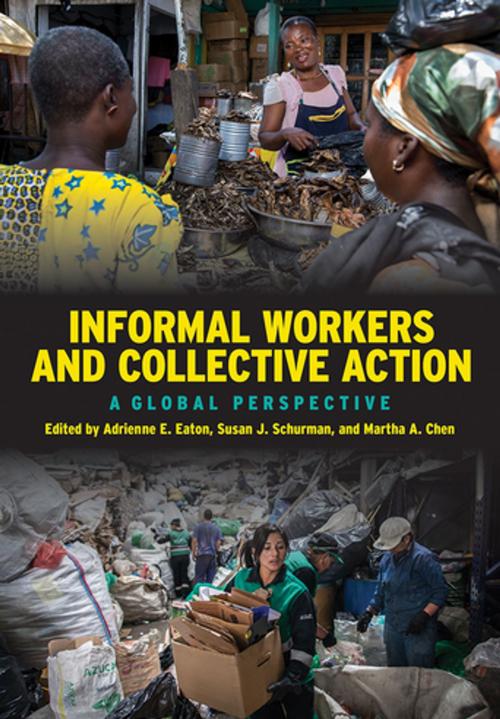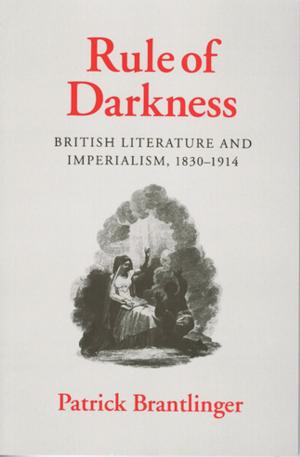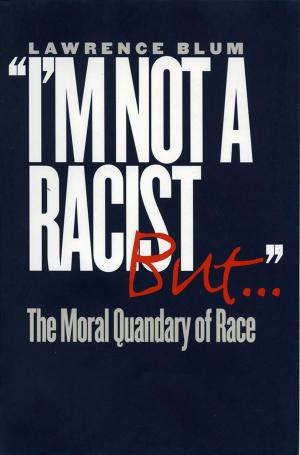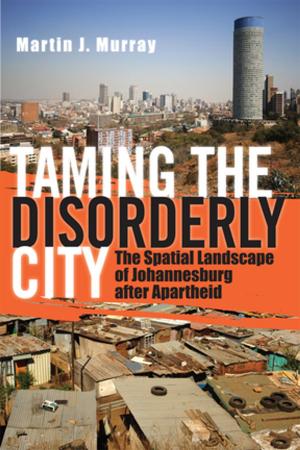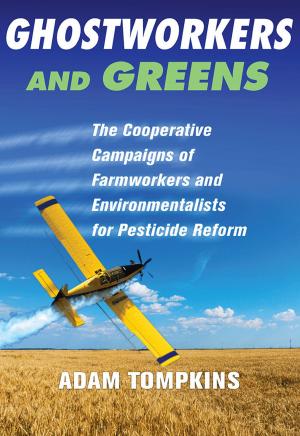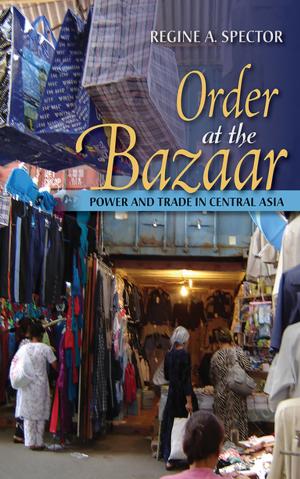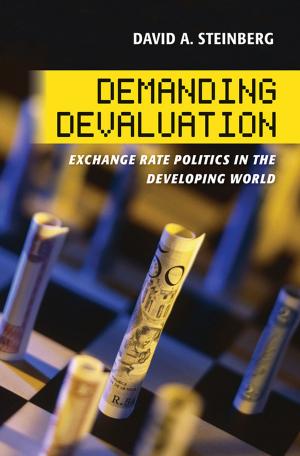Informal Workers and Collective Action
A Global Perspective
Nonfiction, Social & Cultural Studies, Political Science, Politics, Labour & Industrial Relations, Business & Finance| Author: | ISBN: | 9781501707957 | |
| Publisher: | Cornell University Press | Publication: | April 3, 2017 |
| Imprint: | ILR Press | Language: | English |
| Author: | |
| ISBN: | 9781501707957 |
| Publisher: | Cornell University Press |
| Publication: | April 3, 2017 |
| Imprint: | ILR Press |
| Language: | English |
Informal Workers and Collective Action features nine cases of collective action to improve the status and working conditions of informal workers. Adrienne E. Eaton, Susan J. Schurman, and Martha A. Chen set the stage by defining informal work and describing the types of organizations that represent the interests of informal workers and the lessons that may be learned from the examples presented in the book. Cases from a diverse set of countries—Brazil, Cambodia, Colombia, the Dominican Republic, Georgia, Liberia, South Africa, Tunisia, and Uruguay—focus on two broad types of informal workers: "waged" workers, including port workers, beer promoters, hospitality and retail workers, domestic workers, low-skilled public sector workers, and construction workers; and self-employed workers, including street vendors, waste recyclers, and minibus drivers.These cases demonstrate that workers and labor organizations around the world are rediscovering the lessons of early labor organizers on how to aggregate individuals' sense of injustice into forms of collective action that achieve a level of power that can yield important changes in their work and lives. Informal Workers and Collective Action makes a strong argument that informal workers, their organizations, and their campaigns represent the leading edge of the most significant change in the global labor movement in more than a century.Contributors
Gocha Aleksandria, Georgian Trade Union Confederation
Martha A. Chen, Harvard University and WIEGO
Sonia Maria Dias, WIEGO and Federal University of Minas Gerais, Brazil
Adrienne E. Eaton, Rutgers, the State University of New Jersey
Mary Evans, Rutgers, the State University of New Jersey
Janice Fine, Rutgers, the State University of New Jersey
Mary Goldsmith, Universidad Autónoma Metropolitana-Xochimilco
Daniel Hawkins, National Trade Union School of Colombia
Elza Jgerenaia, Labor and Employment Policy Department for the Ministry of Labour, Health and Social Affairs, Republic of Georgia
Stephen J. King, Georgetown University
Allison J. Petrozziello, UN Women and the Center for Migration Observation and Social Development
Pewee Reed, Ministry of Commerce and Industry, Republic of Liberia
Sahra Ryklief, International Federation of Workers' Education Associations
Susan J. Schurman, Rutgers, the State University of New Jersey
Vera Alice Cardoso Silva, Federal University of Minas Gerais, Brazil
Milton Weeks, Devin Corporation
Informal Workers and Collective Action features nine cases of collective action to improve the status and working conditions of informal workers. Adrienne E. Eaton, Susan J. Schurman, and Martha A. Chen set the stage by defining informal work and describing the types of organizations that represent the interests of informal workers and the lessons that may be learned from the examples presented in the book. Cases from a diverse set of countries—Brazil, Cambodia, Colombia, the Dominican Republic, Georgia, Liberia, South Africa, Tunisia, and Uruguay—focus on two broad types of informal workers: "waged" workers, including port workers, beer promoters, hospitality and retail workers, domestic workers, low-skilled public sector workers, and construction workers; and self-employed workers, including street vendors, waste recyclers, and minibus drivers.These cases demonstrate that workers and labor organizations around the world are rediscovering the lessons of early labor organizers on how to aggregate individuals' sense of injustice into forms of collective action that achieve a level of power that can yield important changes in their work and lives. Informal Workers and Collective Action makes a strong argument that informal workers, their organizations, and their campaigns represent the leading edge of the most significant change in the global labor movement in more than a century.Contributors
Gocha Aleksandria, Georgian Trade Union Confederation
Martha A. Chen, Harvard University and WIEGO
Sonia Maria Dias, WIEGO and Federal University of Minas Gerais, Brazil
Adrienne E. Eaton, Rutgers, the State University of New Jersey
Mary Evans, Rutgers, the State University of New Jersey
Janice Fine, Rutgers, the State University of New Jersey
Mary Goldsmith, Universidad Autónoma Metropolitana-Xochimilco
Daniel Hawkins, National Trade Union School of Colombia
Elza Jgerenaia, Labor and Employment Policy Department for the Ministry of Labour, Health and Social Affairs, Republic of Georgia
Stephen J. King, Georgetown University
Allison J. Petrozziello, UN Women and the Center for Migration Observation and Social Development
Pewee Reed, Ministry of Commerce and Industry, Republic of Liberia
Sahra Ryklief, International Federation of Workers' Education Associations
Susan J. Schurman, Rutgers, the State University of New Jersey
Vera Alice Cardoso Silva, Federal University of Minas Gerais, Brazil
Milton Weeks, Devin Corporation
